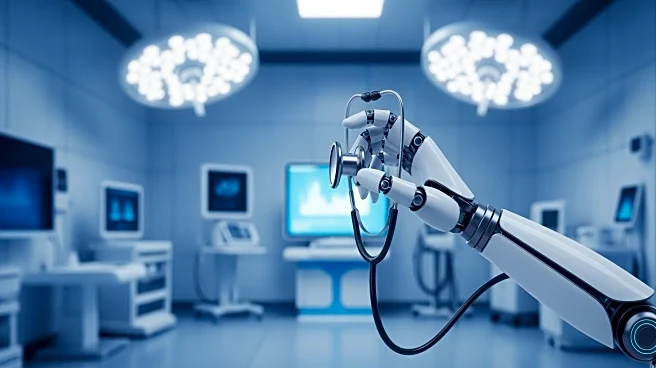What's Happening?
David Simon, an associate professor of law at Northeastern University, discusses the implications of artificial intelligence (AI) liability in the context of self-driving cars and its relevance to medical
malpractice. Simon highlights how jury verdicts and product liability disputes in the autonomous vehicle industry are shaping expectations for future AI-related claims in healthcare. The legal framework developed around self-driving cars may provide a preview of how AI liability will be addressed in medical contexts.
Why It's Important?
Understanding AI liability is crucial as AI technologies become more integrated into various industries, including healthcare. The legal precedents set by self-driving car cases could influence how liability is determined for AI-driven medical devices and systems. This has significant implications for healthcare providers, manufacturers, and patients, as it affects accountability and risk management. The evolving legal landscape will impact how AI is adopted and regulated in healthcare, potentially affecting innovation and patient safety.
What's Next?
As AI continues to advance, stakeholders in healthcare and other industries will need to monitor legal developments closely. The outcomes of liability cases in the autonomous vehicle sector may guide future regulations and standards for AI in medicine. Healthcare providers and manufacturers may need to adapt their practices to align with emerging legal expectations, ensuring compliance and minimizing liability risks.
Beyond the Headlines
The intersection of AI and liability raises ethical and legal questions about responsibility and transparency. As AI systems make autonomous decisions, determining accountability becomes complex, necessitating clear guidelines and robust regulatory frameworks to protect consumers and foster trust in AI technologies.










